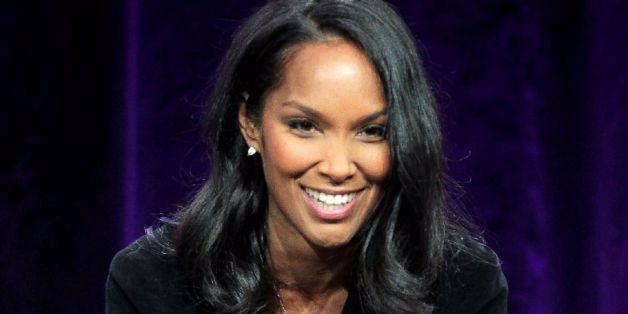
Businessweek - Mara Brock Akil is not a complainer. “If I was an evangelist,” says the 43-year-old television producer, “I’d tell people: Stop bitching, start doing.” She’d been up until three o’clock in the morning working on scripts for the second season of her hit hour-long drama, Being Mary Jane. The show, starring Gabrielle Union as a television host with a messy love life, is BET’s first original scripted drama series. Being Mary Jane premièred to 4 million viewers last summer; that audience swelled to 5.8 million live-and-same-day viewers for the Feb. 25 finale—more than the numbers for the finales of HBO’s True Detective and Girls combined.
“I just don’t buy this,” Brock Akil says to Being Mary Jane’s six writers as she walks into the modernist Venice Beach (Calif.) writing loft she shares with her husband and partner, director Salim Akil. “I need another story outline first thing Monday.” All morning long, she’s been interrupted by calls about her other hit BET show, The Game, a half-hour sitcom set in the world of professional football. In its seventh season, The Game, co-created and produced with Kenny Smith Jr. and Kelsey Grammer, averages 3 million viewers a night, about the same as Tuesday-night broadcast successes such as New Girl and Brooklyn Nine-Nine.
Brock Akil’s shows trounce most of their competition in the ratings, becoming top Twitter (TWTR) trending topics every night they air, and she’s won prizes from just about every African American awards organization out there. But, as a black showrunner on a predominately black network, she hasn’t been accorded the same attention or respect as her industry peers. “I have noticed that,” Brock Akil says, winking good-naturedly. “A long time ago, I wasted a lot of energy on that stuff, and sometimes I got upset, but I got smarter.” Her gold bangles glint in the sunlight as she talks with her hands, as animated and quotable as a leading woman on one of her shows. “I mean, I’ve employed more people than just about anybody, so go ask those other people why they’re not doing it! Don’t put me in a place where it looks like I’m bitching. I’m not bitching. I’m hiring!”
This spring, BET will announce that it’s once again betting on Brock Akil by green-lighting her third series, The Startup, about young tech entrepreneurs. (“It’s like a young Entourage,” she says. “Young kids in college trying to do a startup, falling in love.”) “As a show creator, she has a gift for making a human and emotional connection between the screen and the viewer,” says Charlie Jordan Brookins, senior vice president for original programming at BET Networks (VIA). “And as a showrunner, she has a record of success that’s undeniable.”
Perhaps because her success has often been overlooked, Brock Akil can quote her own stats. “Girlfriends had 172 episodes,” she says, referring to her breakout show. “We’ve already produced 130 episodes of The Game. We’re onto Season 2 of Being Mary Jane. And I feel like I’m just getting started. I want more. Let’s go.”
Raised in Kansas City, Mo., and educated at Northwestern University, Brock Akil began her career in the writers’ rooms of UPN’s Moesha and WB’s The Jamie Foxx Show. She made her name in 2000 by creating Girlfriends, a UPN and CW series about women who date football players—the sort of successful black women who were edited out of the frame of shows such as Sex and the City and who were, apparently, desperate to see their stories on-screen. Girlfriends ran for eight seasons; when the CW canceled it, Brock Akil and her infuriated fans were powerless.
“Girlfriends was my first expression in the medium, my full voice, and it allowed me to document myself,” she says. “It was: I’m here, I deserve to be here, and I’m entitled to it.”
Continue reading at Businessweek
Kimberly Foster is the founder and editor of For Harriet. Email or Follow @KimberlyNFoster
